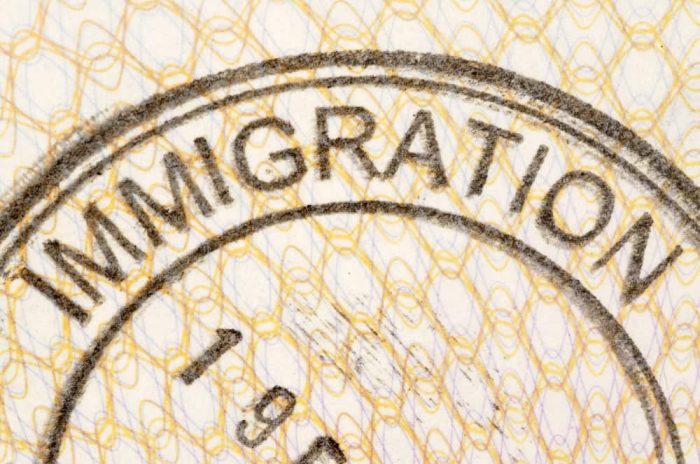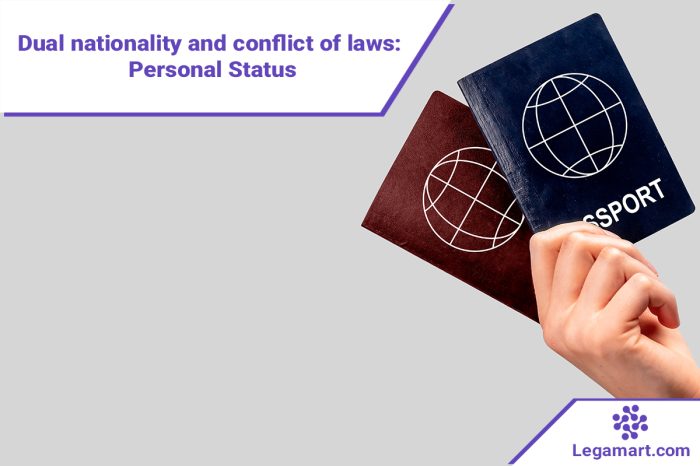Citizenship
Obtaining citizenship of another country requires compliance with specific legal procedures established by the host country’s government. The process often involves an application process, where the individual must prove their eligibility for citizenship. International legal issues may arise because of differences in citizenship requirements between countries. Citizenship can often involve passing an exam or completing a specific residency period. Further, certain regulations may require that the applicant renounce their citizenship with their home country, leading to potential legal complications for the individual in question. Finally, the host country may require the individual to show proof of financial stability to ensure that they can support themselves and their family members in the new country.
Find best lawyers for Citizenship
Issues related to Citizenship
Renouncing your first citizenship:
Renouncing your first citizenship process refers to the legal process of voluntarily giving up one’s primary citizenship. This can be done for several reasons, such as acquiring new citizenship or moving to another country. First, however, a few key steps must be followed to renounce citizenship successfully.
The first step is to fill out and submit the proper paperwork. This can typically be found on the consulate website of the country you are revoking citizenship from. Once this paperwork is completed and submitted, an appointment will be scheduled for an interview.
At the interview, you will likely be asked why you are renouncing your citizenship and questions about your current citizenship status and ties to your home country.
The process of acquiring a second citizenship
There are a few ways to acquire a second citizenship. The most common method is residency or investment programs offered by many countries. Residency programs require applicants to live in the country for 2 and 4 years before becoming eligible for citizenship. Investment programs require real estate or financial investment in the country.
Aside from these two methods, some countries also offer citizenship by naturalisation – granted to foreign nationals who have married citizens of that country – or by descent – granted to individuals whose parents are citizens of that country.


The benefits and drawbacks of having dual citizenship:
Having dual citizenship has many benefits. For example, you can easily travel to two countries and take advantage of both countries’ economic and social opportunities. Also, dual citizenship can give you a sense of belonging to separate cultures and communities.
There are some drawbacks to having dual citizenship as well. You may have difficulty getting a clear answer from authorities about which rules and regulations apply to you. In addition, you may have trouble managing your finances in two countries, and paying taxes in both countries can be complicated. However, the benefits of dual citizenship outweigh the drawbacks.
Tax considerations for dual citizens:
There are a few things to consider regarding tax implications for dual citizens. Specifically, you will want to know how your residency status is viewed by the IRS and which country you are considered a resident of for tax purposes.
Generally speaking, if you are a U.S. citizen and reside in another country, you will still be considered a U.S. resident for tax purposes and will be taxed on your income regardless of where it was earned. However, there are some exceptions to this rule, so it is best to speak with an accountant or tax specialist to help advise you on your situation.

Which nations offer Citizenship by Investment programs?
As of 2019, several countries offer citizenship by investment (CBI) programs. These nations include Antigua and Barbuda, Austria, Bulgaria, Dominica, Grenada, Hungary, Jordan, Latvia, Malta, Montenegro, St Kitts and Nevis, Turkey, and the United Arab Emirates.
Latest Articles
Tell us more about your problem.
Please give a brief description about what it is you need to talk to our lawyers about ?
Frequently Asked Questions
How can online legal platforms assist immigrants in obtaining citizenship in a new country?
Online legal platforms can assist immigrants in obtaining citizenship in a new country by providing guidance and resources on the application process, eligibility criteria, and required documentation. They may offer informational articles and guides, eligibility assessment tools, document checklists and templates, and immigration advice to help immigrants understand the process and increase their chances of success. Additionally, they can provide assistance with completing the application forms, preparing necessary documents, and submitting the application to the relevant authorities. By offering support throughout the citizenship application process, online legal platforms can help ease the stress and uncertainty associated with obtaining citizenship in a new country.
What are the legal requirements and criteria for obtaining citizenship, and how can online legal platforms provide guidance on meeting these requirements?
The legal requirements and criteria for obtaining citizenship vary from country to country, but some common ones include:
Length of residency: The applicant must have resided in the country for a certain period of time in order to be eligible for citizenship.
Language proficiency: Some countries require applicants to demonstrate proficiency in the country’s official language.
Good character: Applicants must provide evidence of good behavior and moral character.
Knowledge about the country: Applicants may be required to pass a test on their knowledge of the country’s history, culture, and political system.
Financial stability: Some countries require applicants to demonstrate that they can support themselves and any dependents during their stay in the country.
Online legal platforms can provide guidance on meeting these requirements by offering resources such as:
Informational articles and guides about the citizenship application process, including eligibility criteria and application requirements.
Eligibility assessment tools that help potential immigrants understand which citizenship programs they may be eligible for based on their qualifications and work history.
Document checklists and templates that simplify the process of gathering and submitting required documentation.
Immigration advice to help applicants navigate the complexities of the citizenship application process and ensure compliance with local laws and regulations.
By providing these resources, online legal platforms can help potential immigrants understand the legal requirements and criteria for obtaining citizenship in a new country, increase their chances of success, and reduce stress and uncertainty throughout the application process.
What are some common citizenship issues, and how can online legal platforms help resolve them?
Common citizenship issues that immigrants may encounter include:
Difficulty gathering required documents: The process of collecting and submitting all necessary documents for a citizenship application can be challenging and time-consuming.
Language barriers: Applicants may face language barriers when communicating with government authorities, which can make the citizenship application process more difficult.
Meeting residency requirements: Some countries require applicants to meet certain residency requirements before being eligible to apply for citizenship.
Passing knowledge or language tests: Some countries require applicants to pass tests on their knowledge of the country’s history, culture, and political system, or demonstrate proficiency in the official language.
Online legal platforms can help resolve these issues by providing a range of resources such as:
Document preparation assistance: Platforms can offer document checklists and templates that simplify the process of gathering and submitting required documentation.
Translation services: Platforms can offer translation services to assist applicants in communicating with government authorities.
Residency planning tools: Platforms can provide resources for residency planning and budgeting to help applicants meet the necessary residency requirements.
Test preparation assistance: Platforms can offer resources for test preparation, including study guides and practice tests.
By providing these resources, online legal platforms can help mitigate some of the common issues associated with obtaining citizenship and increase the chances of success for the applicant. Additionally, they can offer support throughout the entire process to ensure a successful outcome.
How can international entrepreneurs and businessmen in the UK or China obtain citizenship?
International entrepreneurs and businessmen in the UK or China may be able to obtain citizenship through various channels. Some common ones are:
In the UK:
Naturalization: Individuals who have been legally resident in the UK for at least five years may be eligible to apply for citizenship by naturalization.
Investment in the UK: Individuals who make a significant financial investment in the UK may be able to apply for citizenship after a shorter period of residency.
In China:
Naturalization: Foreign nationals who have lived in China for a period of time and meet certain other criteria may be able to apply for Chinese citizenship.
Investment in China: Investors who make a significant investment in China may be eligible for expedited permanent residency or other immigration benefits.
The specific requirements and criteria for obtaining citizenship in the UK or China vary depending on the program being applied for. Online legal platforms can provide guidance and assistance with determining which program may be best suited for an individual’s particular situation, as well as provide resources, advice, and support throughout the citizenship application process.
What are the requirements and benefits of obtaining citizenship in the UK or China?
The requirements and benefits of obtaining citizenship in the UK or China differ depending on the specific program being applied for, but some general information is given below:
In the UK:
Requirements:
Length of residency: Applicants must have lived in the UK for a certain period of time, usually at least five years, before being eligible to apply for citizenship.
Language proficiency: Applicants must demonstrate English language proficiency and knowledge of life in the UK.
Good character: Applicants must provide evidence of good behavior and moral character.
Benefits:
Right to vote: Citizens have the right to participate in national and local elections in the UK.
Travel: UK citizens can travel freely within the European Union and may also have visa-free access to other countries.
Access to healthcare and educational facilities: Citizens can access healthcare services provided by the National Health Service (NHS) and educational facilities available to UK residents.
In China:
Requirements:
Length of residency: Applicants must have lived in China for a certain period of time, usually at least five years, before being eligible to apply for citizenship.
Knowledge about China: Applicants must pass a test on their knowledge of China’s culture, customs, and laws.
Good character: Applicants must provide evidence of good behavior and moral character.
Benefits:
Right to vote: Citizens have the right to participate in elections held in China.
Fewer visa restrictions: Chinese citizens may face fewer visa restrictions when traveling to various countries.
Access to healthcare and educational facilities: Citizens can access healthcare services and educational facilities available to Chinese citizens.
In both the UK and China, obtaining citizenship grants individuals certain rights and benefits associated with being a citizen of that country. Online legal platforms can provide guidance on the specific requirements and criteria for obtaining citizenship in these countries, as well as assist with the application process by providing resources, advice, and support.
What is the process and timeline for obtaining citizenship in the UK or China?
The process and timeline for obtaining citizenship in the UK or China may vary depending on the specific program being applied for, but some general information is given below:
In the UK:
Eligibility assessment: The first step in the process is to assess whether the applicant meets the eligibility criteria for the program they wish to apply for.
Application preparation: Once eligibility is confirmed, the applicant can begin preparing their application, which typically includes gathering necessary documents and completing the application form.
Application submission: The completed application must be submitted along with any required fees and documentation to the relevant government agency.
Processing time: Processing times for UK citizenship applications can vary depending on the type of application and the individual circumstances of the applicant, but can take up to six months or longer.
Citizenship ceremony: If the application is approved, the applicant will be invited to attend a citizenship ceremony where they will make an oath of allegiance to the UK and receive their certificate of citizenship.
In China:
Eligibility assessment: The first step is to determine whether the applicant meets the eligibility criteria for the program they wish to apply for.
Application preparation: Once eligibility is confirmed, the applicant can begin preparing their application, which typically includes gathering necessary documents and completing the application form.
Application submission: The completed application must be submitted to the relevant government agency.
Processing time: Processing times for Chinese citizenship applications can vary depending on the type of application and the individual circumstances of the applicant, but can take up to one year or more.
Citizenship approval and renunciation: If the application is approved, the applicant must renounce any other nationalities they hold before being granted Chinese citizenship.
The specific process and timeline for obtaining citizenship in the UK or China may depend on various factors, including the type of program being applied for and the complexity of the applicant’s case. Online legal platforms can provide guidance and assistance throughout the citizenship application process, helping to ensure compliance with legal requirements and regulations, and minimize delays.












